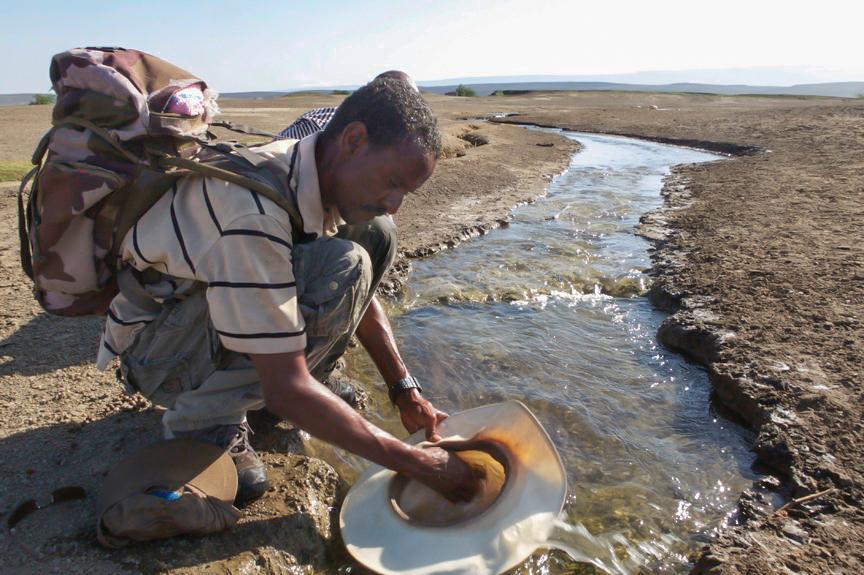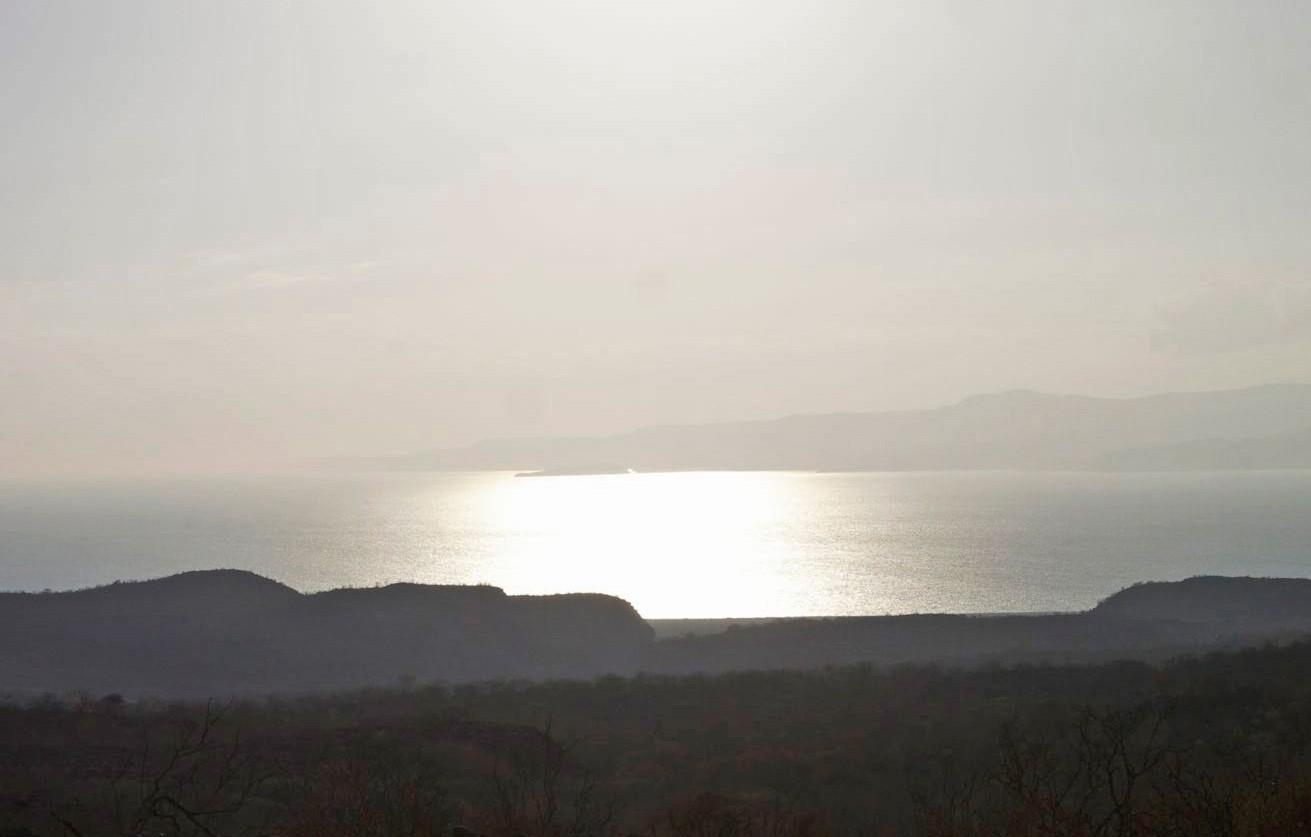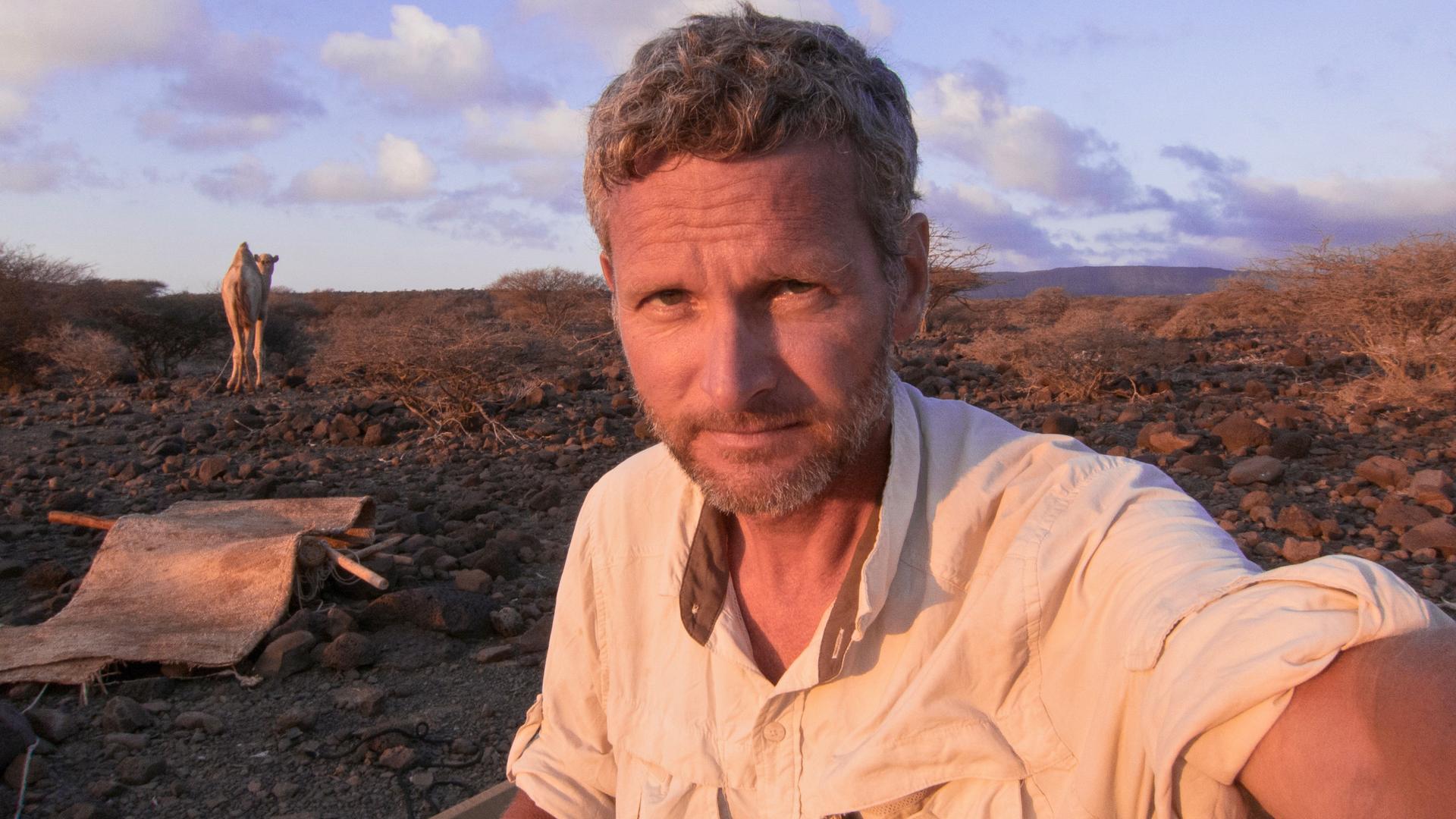These days, the Horn of Africa and the Red Sea region are known for being conflict zones. But 60,000 years ago, they were pathways out of Africa for our oldest ancestors.
National Geographic Explorer Paul Salopek has been following the migration routes of early humans from their origins in Africa, across the globe, to the southern tip of South America since 2013.
He began in Ethiopia and then continued his journey through Djibouti, a small East African country that borders Eritrea, Ethiopia and Somalia.
“I crossed into Djibouti across a border that was desert on one side, desert on the other. Just unchanging dryness,” Salopek told The World. “Temperatures [would go] up to 120 degrees during the day. There was a drought, so there had been no rain for a year.”

But the extreme weather conditions weren’t what haunted him most.
“I was literally walking in many places, the same corridors of dispersal, of early humans, literally on top of their bones, in some cases going through ancient fossil fields.”

He was stirred by the past’s connection to current world events and the fact that migrants still walk the same ancient trails today.
“I wish it were being propelled by positive forces. But as we all know, it’s often negative reasons for leaving. It takes enormous pressure to get people to uproot and move. And I think we need to remember that as we deal with these very complex issues of mobile populations.”
Listen to the full interview by clicking on the blue player above to learn more about Paul Salopek’s experiences in Djibouti and his journey on the Red Sea.
Writer and National Geographic Explorer Paul Salopek has embarked on a 24,000-mile storytelling trek across the world called the Out of Eden Walk. The National Geographic Society, committed to illuminating and protecting the wonder of our world, has funded Salopek and the project since 2013. Explore the project here. Follow the journey on X at @PaulSalopek, @outofedenwalk and also at @InsideNatGeo.
